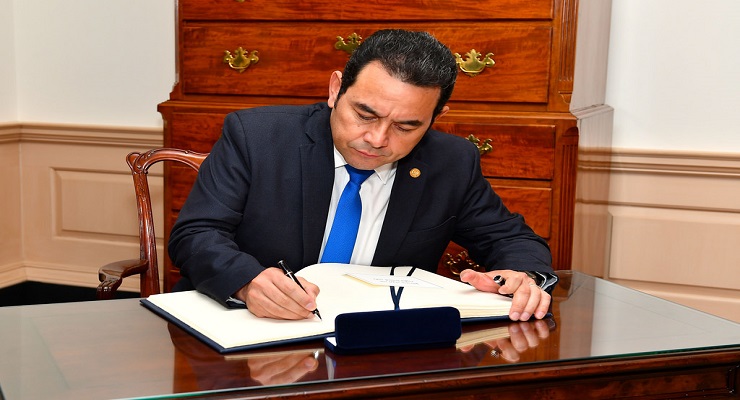
Thousands of people blocked a major highway in Guatemala’s western highlands while others protested in front of Congress on Tuesday to demand that President Jimmy Morales allow a U.N.-backed anti-graft body to operate.
Bearing anti-Morales signs and dressed in colorful traditional clothing, indigenous Maya protested Morales’ decision not to renew the mandate of the International Commission Against Impunity in Guatemala (CICIG) and to ban the group’s leader, Ivan Velasquez, from returning to the country, TV images showed.
Both measures have been harshly criticized by domestic and international observers as a step back in Guatemala’s fight against corruption.
The crowd largely lifted the highway blockade at late afternoon, according to Guatemalan newspaper Prensa Libre.
In Guatemala City, demonstrators clustered in front of Congress to protest actions against the CICIG as well as two legislative initiatives: one that would give the legislature power to oversee the process of stripping politicians of their immunity and another that would permit almost 80 congressmen who have defected from the opposition to join Morales’ party.
Congress President Alvaro Arzu Escobar said that the demonstration disrupted Tuesday’s session in which the initiatives were meant to be discussed.
“It’s unfortunate that a small group of violent people volunteered to block work for thousands of Guatemalans and the legislative body,” he said in a statement.
Congress is scheduled to resume the session on Thursday.
March planned Wednesday
About 100 people stood outside the Congress building by the afternoon, listening to protesters deliver anti-Morales speeches at a microphone in the middle of the street, facing a line of several dozen police officers. They planned another march at Congress for Wednesday.
Critics say the combination of measures against the commission and the legislative initiatives are designed to protect Morales from legal proceedings in a corruption investigation. Morales says he is protecting the country’s sovereignty.
“It is clear we are facing a clear plan by Congress to generate mechanisms of impunity,” said Oswaldo Samayoa, a criminal law professor at Guatemala’s San Carlos University.
In August, the nation’s Supreme Court decided to consider a request to strip Morales of his immunity for his alleged participation in illegal electoral financing. The proceeding, supported by CICIG, is the third against him.
Formed in 2006 to help Guatemalan prosecutors break a cycle of impunity, CICIG is credited with improving the Central American country’s justice system.
Morales’ predecessor is in prison and standing trial for allegedly running a customs racket uncovered by CICIG. Last year, the commission started investigating the current president’s family for alleged corruption and supported impeaching him.
Morales, a former comedian elected in 2015, denies any wrongdoing and says the CICIG has overstepped its authority.
Leave a Reply